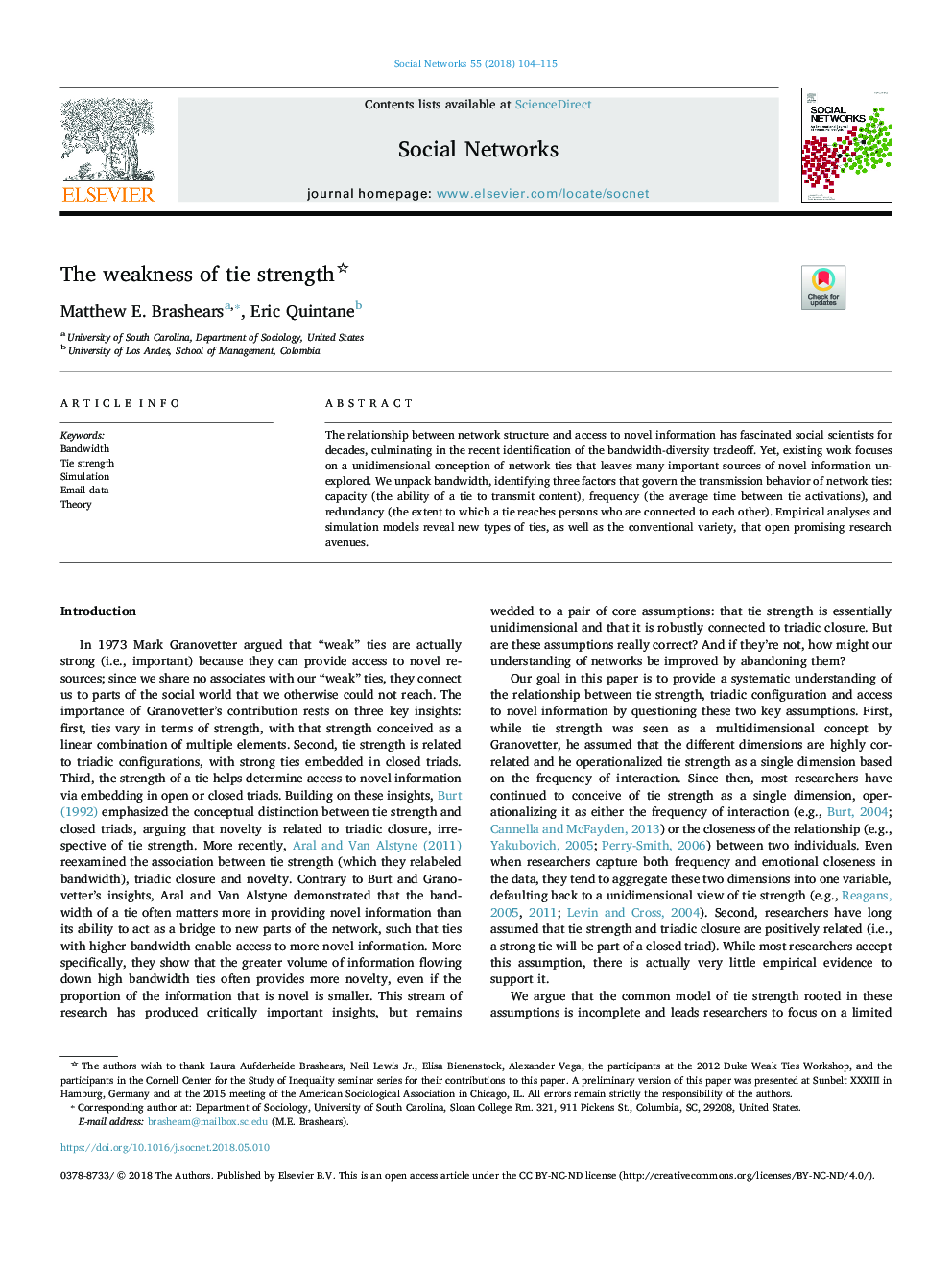| Article ID | Journal | Published Year | Pages | File Type |
|---|---|---|---|---|
| 7538201 | Social Networks | 2018 | 12 Pages |
Abstract
The relationship between network structure and access to novel information has fascinated social scientists for decades, culminating in the recent identification of the bandwidth-diversity tradeoff. Yet, existing work focuses on a unidimensional conception of network ties that leaves many important sources of novel information unexplored. We unpack bandwidth, identifying three factors that govern the transmission behavior of network ties: capacity (the ability of a tie to transmit content), frequency (the average time between tie activations), and redundancy (the extent to which a tie reaches persons who are connected to each other). Empirical analyses and simulation models reveal new types of ties, as well as the conventional variety, that open promising research avenues.
Related Topics
Physical Sciences and Engineering
Mathematics
Statistics and Probability
Authors
Matthew E. Brashears, Eric Quintane,
